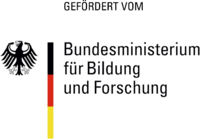Our research project follows the assumption that, in Europe as well as in Asia and Latin America, the ‘new middle classes' are a key factor during times of great societal changes. Middle classes are carriers of specific perspectives of the future which were used as guidelines during times of major changes in society. In Africa, the middle classes are taking a more ambivalent stance in situations of radical change. Despite having inspiring ideas that can lead to political or social changes, the middle classes do not necessarily contribute to stabilizing society. Contrary to the prior assumption of the potential progressiveness, African middle classes can even be conservative forces that hinder social changes. This leads to the question: In which social, economic and political contexts do the African middle classes act? Is the term ‘middle class’ (which was coined in Europe) useful in describing African middle classes? What are the characteristics that shape this African middle class? Is it appropriate to speak of ‘middle class’ or do we need a more nuanced conceptualization? How can we empirically investigate these characteristics? And how can we make them part of the scientific debate on a more theoretical level, in order to be able to more accurately define the term ‘middle class’?
It is important to point out that the term ‘middle class’, which is used throughout this description, is a translation of the German word ‘Mittelschicht(en)’, a sociological term that has more wide-ranging connotations than the English term. One of the aims of the sub-project is a broadening of the English term to mean roughly the same things as the German term, but the reader should keep that in mind.
Kenya is especially suited for this study. As far back as the 1950s, a middle class emerged that has since grown in size as well as importance. The anthropological sub-project studies the description of the urban middle class in Nairobi and Kisumu by using biographical methods, participant observation and interviews. During the last three years of study at the Academy, two main focus points have been developed: Firstly, Lena Kroeker is looking at the social security of life in the middle classes (as a habilitation project). Secondly, Maike Voigt is studying entrepreneurs as part of the middle class (as a PhD project). Erdmute Alber is doing research in Benin on the social heterogeneity of households to provide a contextual framework for comparison.
The sociological sub-project is working on a description of the specific lifestyles and orientations of the Kenyan middle class(es) in Nairobi and Mombasa. Building on sociological approaches for the description of milieus, Dieter Neubert and Florian Stoll are describing middle class Milieus. In publications, they have presented the following main Milieus: The neo-traditional Milieu, the Christian-religious Milieu, the young professionals, the Milieu of the social climbers, the liberal-cosmopolitan Milieu and an a-political pragmatic ilieu (Neubert und Stoll, 2015; Neubert 2016). Florian Stoll will connect these approaches with those of the American Cultural Sociology in his planned habilitation treatise.
The individual research projects are connected by their questions about the future of the individual, of the family, of the ethnic group or of society as a whole. If one wants to influence the future, the preparations for that must start in the present. The individuals and groups in the middle classes formulate their concepts of desired or rejected futures by using different means of expression: The arts and the media; personal conversations; the shaping of space; material expression; norms and values; by remembering experiences which have already been made; or in reference to comparable developments elsewhere. The sub-project follows all these threads to research the concepts of the future of the Kenyan middle class(es).



